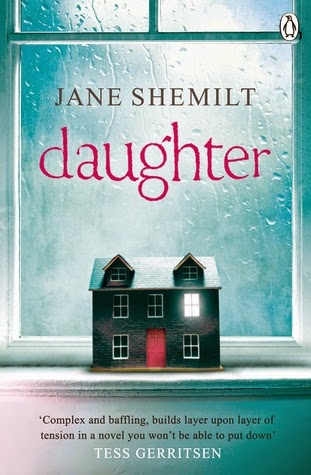Clarity, All Is Clarity, by Ali Bacon
I’m afraid I’m not talking turkey
gravy here, just another writerly conundrum. Do you ‘flatter your reader’ by
letting them work out what’s going on, or just lay it on the line, loud and
clear?
This balancing act came to mind during the recently concluded TV drama The Missing, a gut-wrenching tale about the abduction of a five-year-old child and his father’s insistence on following up new clues eight years later when everyone thinks he should move on. I’m not questioning the characterisation, the acting or even the labyrinthine plot, only the problem of keeping track of what was going on in a narrative that jumped backwards and forwards in time right up until the final denouement. At first we were told this with useful captions ‘present day’ or ‘eight years earlier’ but after a couple of episodes we were left to work it out.
This balancing act came to mind during the recently concluded TV drama The Missing, a gut-wrenching tale about the abduction of a five-year-old child and his father’s insistence on following up new clues eight years later when everyone thinks he should move on. I’m not questioning the characterisation, the acting or even the labyrinthine plot, only the problem of keeping track of what was going on in a narrative that jumped backwards and forwards in time right up until the final denouement. At first we were told this with useful captions ‘present day’ or ‘eight years earlier’ but after a couple of episodes we were left to work it out.
Well that was fine up to a point, but because the locations and characters
were the same in each time frame, some close observation was required:– what
colour is her hair? – how bad is his limp? Despite a fair amount of
concentration a few expletives were unleashed in our living room – so is this
NOW or THEN?!? Maybe producers think it’s good to introduce a degree of
mystification, but once or twice I just felt deliberately confused (why were we suddenly in the Indian Ocean?) as if the
story wasn’t taut enough without a degree of over-complication.
 |
| Daughter, captivating, and above all, clear! |
While the series was under way I also happened to read Daughter
by Jane Shemilt about the disappearance of a teenager. This narrative is
also in two time-frames hinging on the day of her disappearance. There were a
few other similarities with The Missing, but how wonderful it was to be told at
the start of every single chapter that this was ‘two weeks before’ or ‘6 months after’ the abduction (if that’s
what it was).
Clarity! This harrowing (but not entirely bleak) novel unfolds with a sense
of inexorability that’s the hallmark of a page-turner without ever feeling
contrived or over-complicated.
I suppose the visual medium has different demands and too
much labelling might have seemed clunky - and I know that even in a book ‘date stamps’
don’t always work (I read the whole of The Time Traveler’s Wife without taking
in any of them!) But there are lots of ways you can flag up a change of chronology in print or on screen. And if in doubt, I’d say don’t risk irritating your reader. Make the stuff they really need to know as obvious as you can!
 |
| Celebrate Christmas with a book, or a whole tree of them! |
Seasonal message? I think it has to be that Christmas is for
reading, so here’s a lovely tree built at my local library in Emersons Green, Bristol, where I’ll be
joining in Christmas stories and carols on Tuesday.
Happy Christmas and a Guid New Year!
Comments
P.S. In case you were wondering, I am not a robot :)